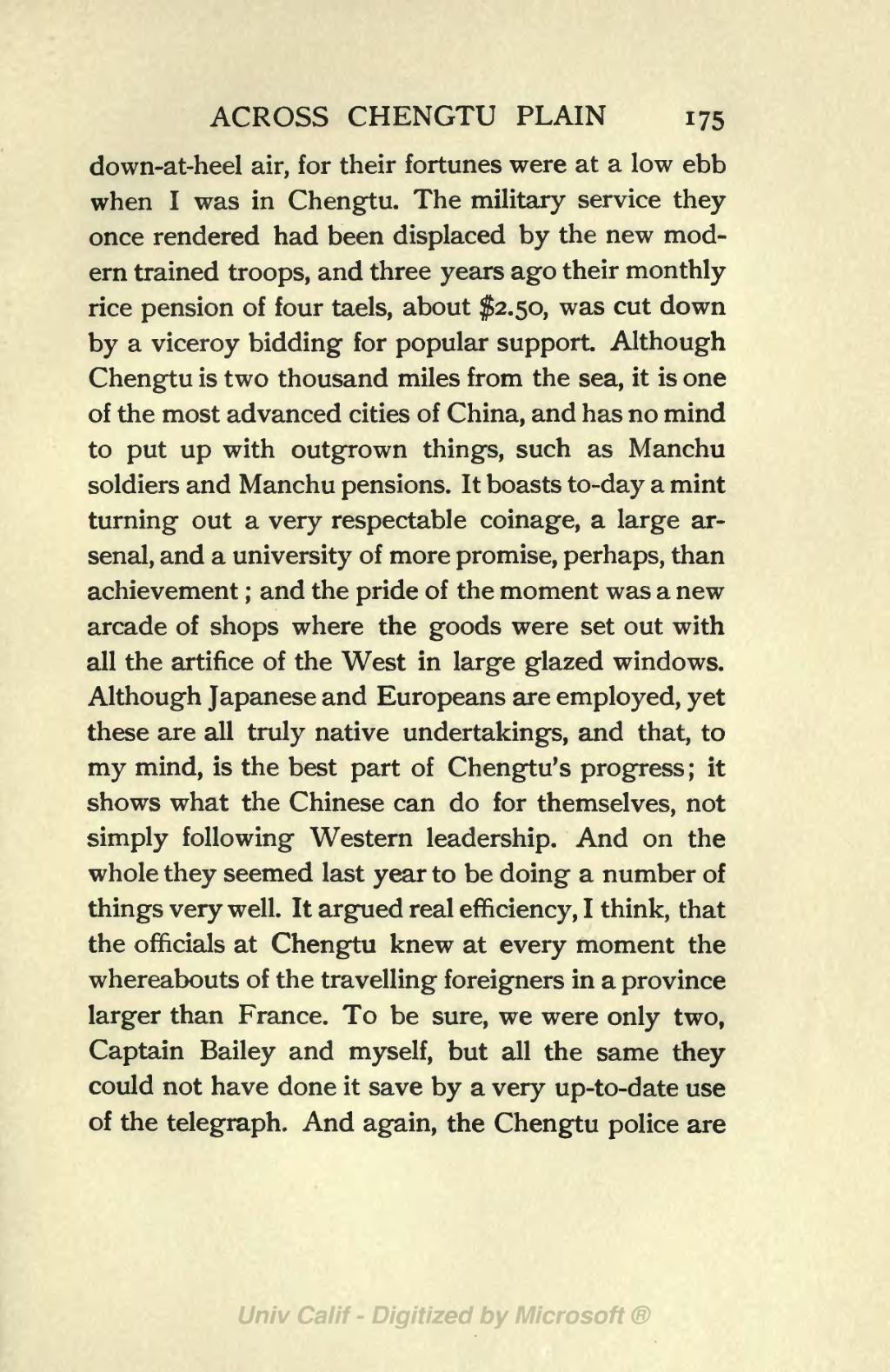down-at-heel air, for their fortunes were at a low ebb when I was in Chengtu. The military service they once rendered had been displaced by the new modern trained troops, and three years ago their monthly rice pension of four taels, about $2.50, was cut down by a viceroy bidding for popular support. Although Chengtu is two thousand miles from the sea, it is one of the most advanced cities of China, and has no mind to put up with outgrown things, such as Manchu soldiers and Manchu pensions. It boasts to-day a mint turning out a very respectable coinage, a large arsenal, and a university of more promise, perhaps, than achievement; and the pride of the moment was a new arcade of shops where the goods were set out with all the artifice of the West in large glazed windows. Although Japanese and Europeans are employed, yet these are all truly native undertakings, and that, to my mind, is the best part of Chengtu's progress; it shows what the Chinese can do for themselves, not simply following Western leadership. And on the whole they seemed last year to be doing a number of things very well. It argued real efficiency, I think, that the officials at Chengtu knew at every moment the whereabouts of the travelling foreigners in a province larger than France. To be sure, we were only two, Captain Bailey and myself, but all the same they could not have done it save by a very up-to-date use of the telegraph. And again, the Chengtu police are
Page:A Wayfarer in China.djvu/231
This page has been validated.
ACROSS CHENGTU PLAIN
175
